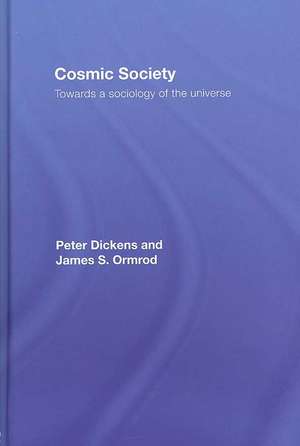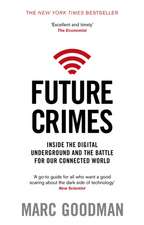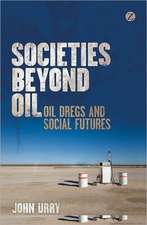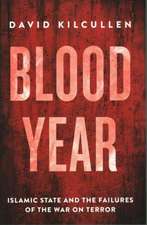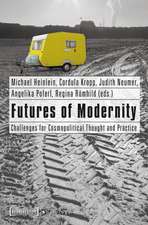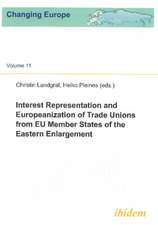Cosmic Society: Towards a Sociology of the Universe
Autor Peter Dickens, James Ormroden Limba Engleză Hardback – 25 oct 2007
Göran Therborn is University Professor of Sociology at Uppsala University, Sweden, and Professor and Chair of Sociology at the University of Cambridge, UK.
Arguably the most important and certainly the most ambitious book of recent sociology.
Bryan Turner, Editor of the Cambridge Dictionary of Sociology.
Space weaponry, satellite surveillance and communications, and private space travel are all means in which outer space is being humanized: incorporated into society’s projects. But what are the political implications of society not only being globalized, but becoming ‘cosmic’?
Our ideas about society have long affected, and been affected by, our understanding of the universe: large sections of our economy and society are now organized around humanity’s use of outer space. Our view of the universe, our increasingly ‘cosmic’ society, and even human consciousness are being transformed by new relations with the cosmos.
As the first sociological book to tackle humanity’s relationship with the universe, this fascinating volume links social theory to classical and contemporary science, and proposes a new ‘cosmic’ social theory. Written in a punchy, student-friendly style, this timely book engages with a range of topical issues, including cyberspace, terrorism, tourism, surveillance and globalization.
| Toate formatele și edițiile | Preț | Express |
|---|---|---|
| Paperback (1) | 411.64 lei 6-8 săpt. | |
| Taylor & Francis – 10 dec 2009 | 411.64 lei 6-8 săpt. | |
| Hardback (1) | 1056.28 lei 6-8 săpt. | |
| Taylor & Francis – 25 oct 2007 | 1056.28 lei 6-8 săpt. |
Preț: 1056.28 lei
Preț vechi: 1288.15 lei
-18% Nou
Puncte Express: 1584
Preț estimativ în valută:
202.15€ • 210.26$ • 166.88£
202.15€ • 210.26$ • 166.88£
Carte tipărită la comandă
Livrare economică 15-29 aprilie
Preluare comenzi: 021 569.72.76
Specificații
ISBN-13: 9780415374323
ISBN-10: 0415374324
Pagini: 240
Ilustrații: 29 b/w images, 1 table, 8 halftones and 21 line drawings
Dimensiuni: 156 x 234 x 19 mm
Greutate: 0.5 kg
Ediția:New.
Editura: Taylor & Francis
Colecția Routledge
Locul publicării:Oxford, United Kingdom
ISBN-10: 0415374324
Pagini: 240
Ilustrații: 29 b/w images, 1 table, 8 halftones and 21 line drawings
Dimensiuni: 156 x 234 x 19 mm
Greutate: 0.5 kg
Ediția:New.
Editura: Taylor & Francis
Colecția Routledge
Locul publicării:Oxford, United Kingdom
Public țintă
Postgraduate and UndergraduateCuprins
Introduction: Cosmic Society 1. The Cosmic Order, the Social Order and the Self 2. The Outer Spatial Fix 3. Capital, Outer Space and Star Wars 4. Satellites and Social Power 5. Space Tourism and Human Identity 6. Industry and Empire in Space. Conclusion: Cosmic Imperialism and Social Resistance
Notă biografică
Peter Dickens is an Affiliated Lecturer in the Faculty of Social and Political Sciences at the University of Cambridge and Visiting Professor of Sociology, University of Essex.
James Ormrod is a Lecturer in Sociology at the University of Brighton.
James Ormrod is a Lecturer in Sociology at the University of Brighton.
Recenzii
"An original vision and a pedagogical text on a major issue of our time and, even more, of our childen´s."
Göran Therborn is Professor and Chair of Sociology at the University of Cambridge, UK and is also co-Director of the Swedish Collegium for Advanced Studies in the Social Sciences, Sweden.
"Arguably the most important and certainly the most ambitious book of recent sociology."
Bryan Turner, Editor of the Cambridge Dictionary of Sociology.
Göran Therborn is Professor and Chair of Sociology at the University of Cambridge, UK and is also co-Director of the Swedish Collegium for Advanced Studies in the Social Sciences, Sweden.
"Arguably the most important and certainly the most ambitious book of recent sociology."
Bryan Turner, Editor of the Cambridge Dictionary of Sociology.
Descriere
As the first sociological book to tackle humanity's relationship with the universe, this fascinating volume links social theory to classical and contemporary science and proposes a new 'cosmic' social theory.
